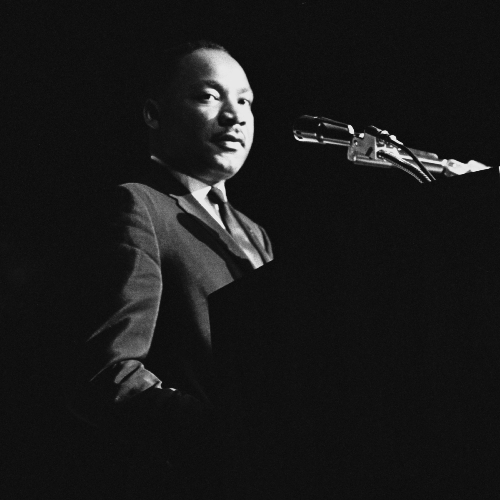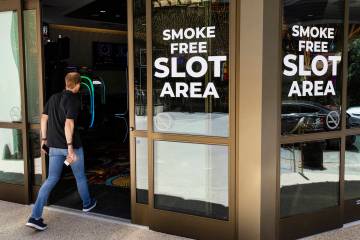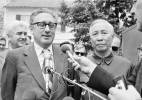King’s speech urged Nevadans to support ’64 Civil Rights Act
Just nine weeks before the Civil Rights Act of 1964 was signed into law, Martin Luther King Jr. urged Las Vegans to "scratch out a note" to their senators in support of the landmark legislation.
Speaking to an audience of 1,200 at the Convention Center on April 26, 1964, King noted the "magnificent demonstration of bipartisan cooperation" that helped the bill through the House of Representatives, but warned that opposition to the bill could stall it in the U.S. Senate, according to an article that ran the next day in the Review-Journal.
The Civil Rights Act, which outlawed major forms of discrimination based on race or sex, was enacted July 2, 1964.
The civil rights icon, who had delivered his seminal "I Have a Dream" speech on the steps of the Lincoln Memorial in Washington, D.C., eight months before, was in Las Vegas to speak at a rally for the National Association for the Advancement of Colored People.
He called for continued nonviolent actions to wear down remaining opposition to civil rights reform.
"We will match your capacity to inflict suffering with our capacity to endure suffering," he said to cheers. "We will wear you down by our capacity to endure suffering."
King, who won the Nobel Peace Prize later that year, said black people in America had come a long way, but still had a long way to go.
"Old Man Segregation is on his death bed," he said. "We have seen the walls of segregation gradually crumble ... but violence is still being used against individuals who stand up to defend what is right."
King traced the history of blacks in America from the first slave ships that landed here to the landmark 1954 U.S. Supreme Court decision that declared laws establishing separate public schools for black and white students unconstitutional.
Until the recent movements of the previous two decades, King said, blacks "came to feel less than human, with no rights the white man felt bound to respect."
Earlier that day, King spoke to 500 people at an NAACP banquet, where he lashed out at the use of poverty, crime rates and other "results of segregation as an argument for the continuation of it."
He also lobbied there for civil rights reform.
"Legislation can't make a man love me, but it can restrain him from lynching me," he said.
King was assassinated April 4, 1968, in Memphis, Tenn. He was 39 years old.
Contact reporter Lynnette Curtis at lcurtis@reviewjournal.com or 702-383-0285.




























